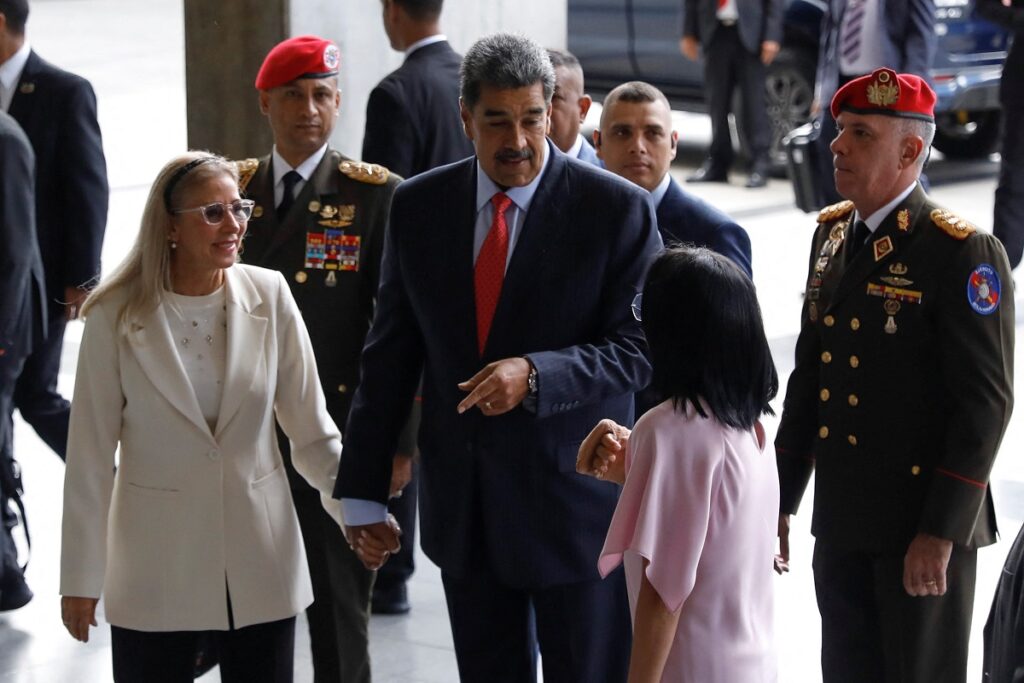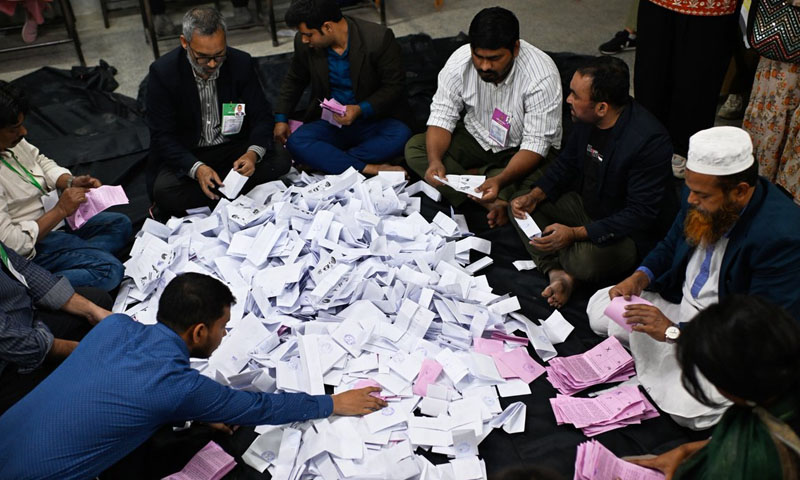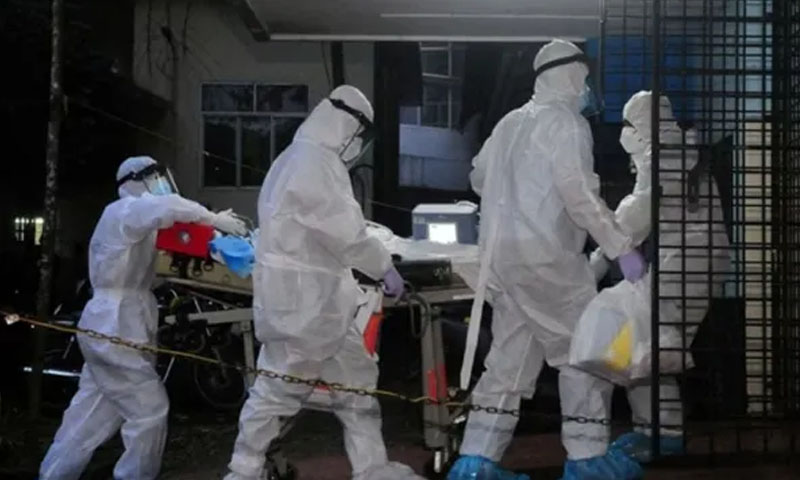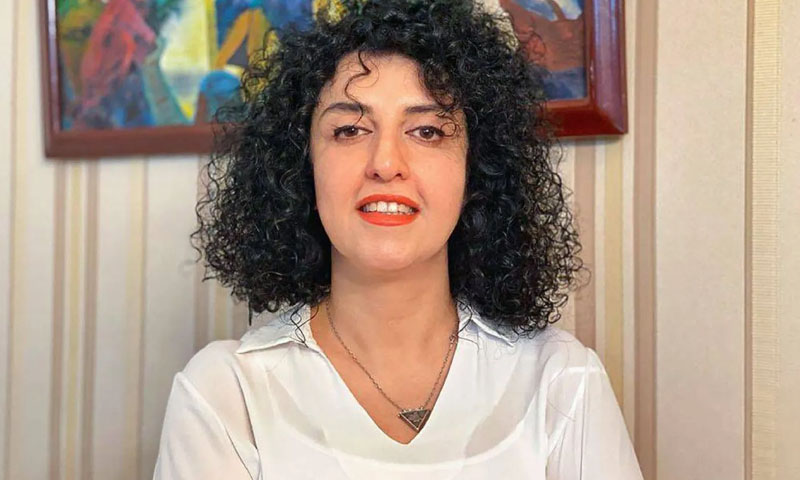- Web Desk
- Yesterday
Latin American presidents expected to discuss Venezuela
-

- Reuters
- Aug 02, 2024

CARACAS/BRASILIA/BUENOS AIRES: Some Latin American presidents, including Brazil’s Luiz Inacio Lula da Silva, are expected to discuss the situation in Venezuela on Thursday after Venezuelan leader Nicolas Maduro was declared the winner in contested election results.
Venezuela’s electoral council proclaimed Maduro, who has been in power since 2013, the winner of the July 28 election with 51 per cent of the vote, sparking accusations of fraud.
Read more: Venezuela: Protesters oppose Maduro claim of election victory
The country’s opposition says its tally of about 90 per cent of the votes shows its candidate Edmundo Gonzalez received more than double the support of the incumbent president.
Leaders in Brazil, Colombia and Mexico have adopted a more neutral stance on Venezuela’s election, where a void has grown between many regional neighbors and Maduro in the wake of Sunday’s vote, with a number of countries – including Argentina and Peru – criticizing the electoral process.
In response, Venezuela has expelled diplomats from Argentina and five other countries – Chile, Costa Rica, Panama, the Dominican Republic and Uruguay over election-related criticism.
Caracas also severed relations with Peru after Lima recognized Gonzalez as Venezuela’s elected president. The government in Lima also expelled Venezuelan diplomats from Peru.
Lula, a source said, will have a call on Thursday with Mexican President Andres Manuel Lopez Obrador and Colombian leader Gustavo Petro to discuss the situation in Venezuela.
Lopez Obrador affirmed that such a call could take place early Thursday afternoon.
Maduro has also requested a call with Lula, the source said. A potential discussion between the two leaders would come after Brazil on Thursday took over administration of the Argentine and Peruvian embassies following the expulsion of those countries’ diplomats.
Brazil will mediate on issues regarding Argentine and Peruvian citizens in Venezuela, the main one being the status of six Venezuelan opposition figures who sought asylum in the Argentine embassy and now live in the ambassador’s residence.
“I greatly appreciate Brazil’s willingness to take charge of the custody of the embassy,” Argentine President Javier Milei wrote on X. “I have no doubt that we will soon reopen our embassy in a free and democratic Venezuela.”
The six asylum seekers were now under Brazil’s protection, a Brazilian government source said, who added that the regional giant’s main concern was preventing the outbreak of civil war in Venezuela.
Many nations in the Western Hemisphere, including the U.S., are pressuring Maduro’s government to release comprehensive vote totals, something his government has yet to do.
The U.S.-based election monitor group Carter Center cannot verify or corroborate Venezuela’s election results, it said this week.
“The fact that the president of (Venezuela’s electoral authority) has declared that he already had 80% of the voting certifications and that these are not yet public has no justification,” said Patricio Ballados, deputy for the Carter Center’s Venezuela electoral mission.
The disputed election has led to deadly, widespread protests that Maduro and his allies in the military have denounced as an attempted coup. Human Rights Watch said on Wednesday it had received reports of 20 deaths in post-election demonstrations.
Shops and public transport across Venezuela, which is mired in a deep and lengthy economic crisis marked by sky-high inflation and chronic shortages of basic goods, shut down on Wednesday as tensions rose and rumors of more opposition arrests and sporadic violence kept many people home.
Some Maduro allies have said Gonzalez and high-profile opposition leader Maria Corina Machado should be arrested for their role in the anti-government protests, which also occurred in longtime ruling party strongholds.
Aides to Machado requested asylum at the Argentine embassy in March after a local prosecutor issued arrest warrants against them for conspiracy. Machado, who has denied allegations of misconduct by her team, was blocked from being a candidate in Sunday’s presidential election despite being the frontrunner in polls.
Reuters reported in April, citing a Venezuelan official source, that Maduro’s government would allow the six opposition figures currently in the Argentine ambassador’s residence to leave safely for Buenos Aires.
But as relations between the two countries deteriorated further, Argentina accused Maduro’s government of reneging on promises to allow the six to safely leave.
On Monday, as Venezuela spiraled into protests and violence, one of them – a Machado advisor – said on social media that security forces were trying to enter the building. He later reported the attempts had been unsuccessful.
Celso Amorim, who is Brazil’s top presidential advisor on foreign policy, relayed concern over the six asylum seekers when he met with Maduro on Monday, according to a source close to Amorim.
Read more: Venezuela opposition it has 73 per cent of vote tallies
“Brazil has asked for protection for the Argentine embassy, and Maduro agreed to that,” a Brazilian diplomat said.
A spokesperson for Argentina’s foreign relations ministry confirmed the Argentine diplomats would leave Venezuela on Thursday, traveling first to Europe and then Buenos Aires.




